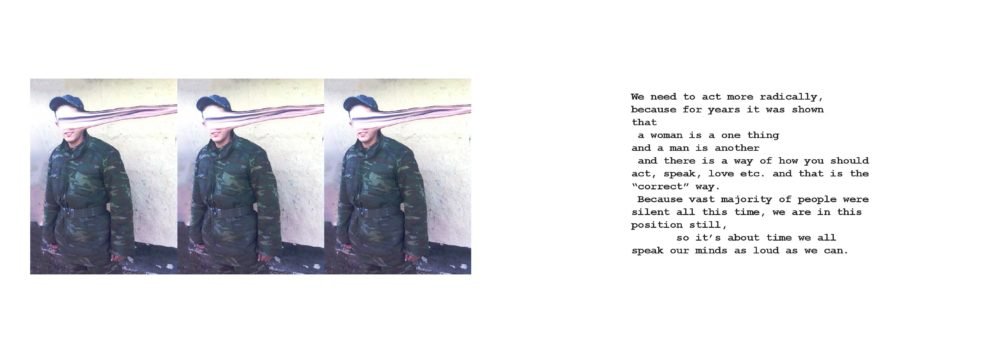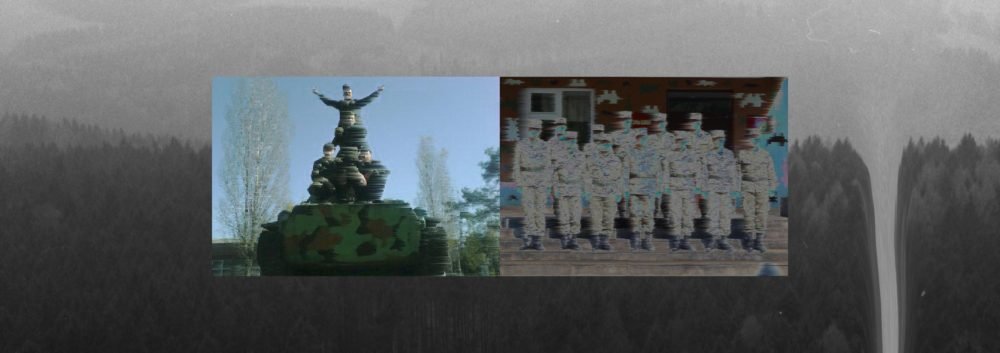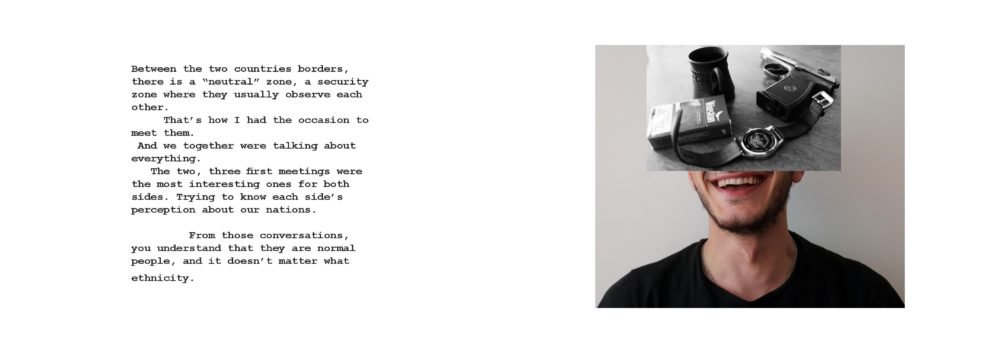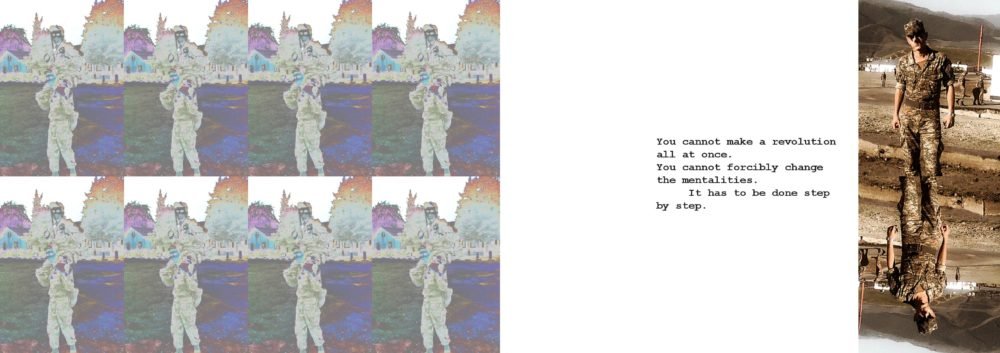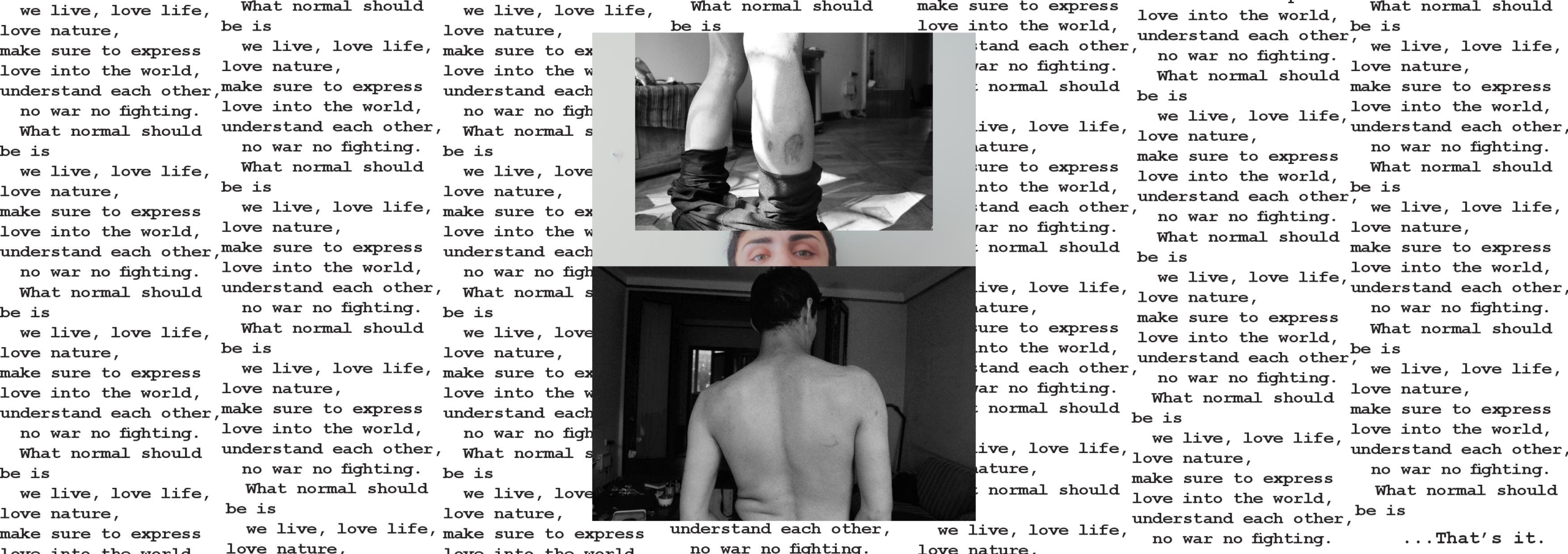
Being Gay and in Military Service
“I was wondering how to hide it [homosexuality]. And the more I thought about that, the more I realized that I wouldn’t make it during the two-year stint. I even thought about suicide.” Hayk, a 21 year old student, sits on a bench in a park in the center of Yerevan (his name has been changed for this article). He’s lost in a fog of memories. He remembers what he felt weeks before leaving home for military service.
“I heard many things about the way they treat gays in the military. I was warned that they beat people like me,” he said.
Hayk realized that he was gay at the age of 17. He never fully told the truth to his parents, although he made it clear to his mother.
“She still thinks it’s temporary and that one day I could be cured,” he said with a slight smile on his face.
For him, things got worse when he reached the age required to enlist in the Armenian armed forces. In 2016, he found himself among new soldiers, all 18 years old, who were drafted for two consecutive years.
Since 1992, military service has been obligatory for Armenian male citizens between the ages of 18 and 27.
Armenia was defined as a nation-army by the previous government led by Serzh Sargsyan. According to this term, Armenian society is narrowly bonded to its armed forces:
“The nation-army is far more than a national army because a national army serves the nation, while the nation-army is the nation itself. Taking into account that our armed forces are disproportionate compared to the territory, population and the size of the country, they can’t be taken separately from that population. Our society can’t be isolated from the army, neither can the army get self-contained and distance itself from the people. Just think about this: every 40th citizen of our nation–from an infant to an elderly person–is wearing a uniform.”
If a whirlwind of emotions seized Hayk under the pressure of this nation-army ideology, Edgar (his name has been changed for this article) tried to rationalize and control his feelings before the big day that will lead him to two years of war life.
“People would tell me that I was going to hell and forget about sleeping and eating decent food. I was going to suffer for two long years,” he said, while nervously fiddling with his lighter. “Others told me the opposite. In the end, you never know until you go there and experience it for yourself. For me, it was mostly okay.”
Edgar served in the northern part of Armenia. “I was with 450 hungry 18 year olds, full of energy, who all needed to affirm themselves at the expense of others.”
He felt the need to prove that being gay does not make him a weak person. After lighting his cigarette, he removed a gun that he stuck under his belt and put it on the table.
“The way people see gay people in this society is related to gay people’s behavior. If you seem vulnerable, people will break you,” he said. The gun seemed to be a way for him to prove his virility.
People from the LGBTI community are highly discriminated in Armenia. Although homosexuality was decriminalized in 2003, most of Armenian society frowns down upon it. According to a 2011 public survey conducted by the Caucasus Research Resource Center (CRRC), 97% of respondents said that homosexuality can never be justified. Homosexual people are perceived to be abnormal, deviant and a threat to the nation and state.
Another 2011 local report released by the organization We and Our Rights about public opinion toward LGBTI people in the cities of Yerevan, Gyumri and Vanadzor reveals that 66.9% of the people surveyed think that society should condemn LGBTI persons, 52.7% of them think that it is not appropriate for Armenians to be LGBTI, 70.9% of them consider homosexuals strange people and an overwhelming majority (97.4%) think it is a deviation.
Humiliation and ‘dedavshina’
In Baku, the capital of Azerbaijan, the situation for LGBTI people is certainly not better. Ilgar (his name has been changed for this article), a young man with curly hair and a bright smile knows this well. Ten years ago he was called on by the Azerbaijani government to “fulfill his duty” for a year and a half in an area close to a war zone.
“In my country, there is a special world, mentaliteit, which means that if you were born a man, it is your duty to serve and if you don’t go, people will look down upon your decision,” Ilgar said. “Before going to the army, your family and your neighbors make such a big deal of it that it looks almost like a celebration.”
While remembering this period of his life, one word comes to Ilgar’s mind: dedavshina. In essence, the word is defined as the act of people constantly submitting to someone’s authority and rules by using humiliating ways to achieve that.
“Dedavshina was very strong where I served,” he said. “There were constant slurs and altercations. I was trying to avoid them but they still happened sometimes.”
The 28 year-old man never revealed that he was gay there, all the more so as most of the slurs were homophobic. According to Ilgar, he was lucky enough to have had a tranquil military service.
“But it’s because no one knew I was gay,” he said.
For Ilgar, the conservative perception and intolerance towards LGBTI community of Azerbaijan stems from the Soviet times.
“It was and still is a taboo, it wasn’t talked much about during the Soviet times,” he said. “Nobody tried to raise the issue because everyone was afraid of being judged and being turned against, which is why this reaction still exists. People who know about homosexuality only have superficial knowledge. That’s why they still are suspicious and avoid the topic. Those who have no clue react aggressively.”
According to the LGBTI rights group ILGA-Europe, Azerbaijan is the worst country for a LGBTI person to live in Europe. In their 2019 Rainbow Map that reflects the legal and policy human rights of LGBTI people in Europe, Azerbaijan’s result is 3%, with 0-5% considered a gross violation of human rights.
Azerbaijan lacks the legal framework to protect the LGBTI community. Nothing major has been done to make the lives of homosexuals easier since 2001, when homosexual relations between two men was decriminalized by law. In September 2017, Azerbaijan’s LGBTI community faced a huge crackdown–more than 150 trans and gay people were arrested, humiliated and tortured by law enforcement authorities.
“As there is no legal protection of LGBTI people in the country, community members face discrimination in every field of life, from education to health services, from military to housing,” said Vahid Aliyev, a LGBTI rights defender.
Keeping the secret to survive
Because of the situation in his country, 23 year-old painter Nijat panicked when the time came for him to serve (his name has been changed for this article).
“I felt a little like I was heading towards death at some point,” he said while laughing.
Nijat kept his sexual orientation secret during his 20 month-long military service. His stint went pretty smoothly, but he believes that things would have been dreadful if people knew about his homosexuality.
“Nowhere do they use as many homophobic slurs as they do in the army,” Nijat said. “They use it everywhere, with the purpose to encroach upon your dignity, as an insult, as a joke or in a serious fight. If they knew I was gay, I think I would not see the end of the bullying. I think I could have definitely faced further physical aggression from other soldiers and commanders.”
For each compulsory system, there are exceptions. In Azerbaijan and Armenia, young people can be exempted from service under certain conditions. A homosexual person can be discharged from military service because of his sexual orientation. In Azerbaijan, authorities refer to the laws on military-medical examination. Article 18B states that “Personality disorders: moderately expressed, with or without compensation, sexual orientation is not a disorder per se.”
“However, sexual identification and sexual preferences are considered a personality disorder in the exact same law,” Aliyev said. “These two criteria are probably referring to trans people, but we are not sure, as homosexuals are not allowed to serve in the army if they officially reveal their orientation during pre-military consultations.”
Nijat and Ilgar could’ve been exempted, but they did not tempt fate. If the authorities found out that they were gay, they would have had tell the truth to their relatives, which would have brought negative consequences for them.
“Basically you have to prove you are gay… otherwise they would think you came up with an excuse because you are afraid of the army,” Nijat said. “One of my friends told them he was gay and they told him that he looks normal. The next day, he shaved his legs, put on a mini dress, wore some lipstick on and went back to the consultation. He was exempted.”
Homosexuality, the mental illness
In Yerevan, the doorbell rings. Edgard stands up and goes to open the door. His friend Lilit comes in and sits next to him. Lilit has long nails but today, she did not apply nail polish. Her hair is short, her lips hydrated with some gloss and her eyebrows are perfectly plucked. Lilit did not always have her current name, she chose it. She was born male.
She became aware of her orientation at the age of 6 or 7 when the school principal stopped her from entering the girls restroom.
Like Nijat and Ilgar, Lilit could have avoided the army. But she needed to prove to her uncles that she could do it. “So imagine that you are in a bus on the way to the military base with around a hundred boys, and you are the only girl,” she said. “How would you feel?”
Armenia has the same logic as Azerbaijan for exempting homosexuals from the army. State bodies are guided by the Armenian Defense Minister’s Order No. 410-13 (on Health Conditions of Conscripts and Servicemen) for the release of homosexual persons from compulsory military service. According to the order, the list of mental disorders include “personal and behavioral disorders, including specific and mixed disorders of the individual, disorders of habits and inclinations, sexual identification disorders, sexual preference disorders, psychological and behavioral disorders associated with sexual development and orientation.”
“There is such chaos in the army that the government decides to exempt them for the safety of homosexuals by citing this article,” said Mamikon Hovsepyan, Executive Director of PINK Armenia, an LGBTI rights organization. “If their orientation is going public, they face violence from other soldiers. Their superiors send them either to another official or to the psychiatric ward of a hospital. There they are humiliated, mocked, and fed either bad food or no food at all. After one month they are discharged from service.”
Army and masculinity
Lilit served in Shushi/Shusha, a city located in Nagorno-Karabakh. They soon discovered that she was transgender. At first, they mocked her and isolated her–she even faced sexual harassment from one of her superiors.
“But it is all about your behavior,” she said. “You have to gain their respect. You have to show that you are strong and that you will not let them be disrespectful.”
According to her, the rest of her service went well.
Hayk takes a sip of water at the pulpulak, a small public fountain for thirsty bystanders.
“If you act too ‘feminine’ they will destroy you; your life will become a nightmare,” he said. “I was trying to keep a distance from those disgusting and aggressive guys. It is the only way to survive. I remember that one guy was acting too feminine. He attempted suicide after being bullied for a long time.”
The same thing happened to Edgar when he was outed by one of his fellow soldiers. After 8 months of service, he risked being discharged–a scenario that was unthinkable for him.
“Serving 8 months for nothing? No way!” he said.
His superiors let him continue, but the first month after the revelation was hard. He got isolated from the group and was insulted. It got worse when four of them took him away and beat him for an hour and a half. His superiors put an end to it.
Edgar agrees with Hayk and Lilit. “You have to stay strong and never give them an opportunity to get the best of you,” he said.
Shame and murder
Hayk, Edgar, Lilit, Nijat and Ilgar finished their service safe and sound. They were lucky enough. But that is not the case for all homosexuals serving in the army. According to Hovsepyan, some death cases remain cold cases.
“They make a murder look like a suicide or an accident,” Hovsepyan said. “For example, there was one case where, according to the official authorities, a soldier drowned accidentally in the river. When we investigated further, we heard from an unofficial source that the soldier was gay and was raped by 10 other fellow soldiers, then they drowned him in the river.”
Hovsepyan claims there are even cases where the parents themselves kept the violence committed against their sons secret so that their homosexuality would not be made public.
In Armenia, the army mirrors society. Intolerance toward homosexuals has been firmly embedded in Armenian culture, and in the army this has manifested very cruelly.
Time has passed since these ex-soldiers were discharged. We asked them how they perceive this period of their lives in hindsight.
Hayk, Edgar and Lilit did not regret having served in the army. They claim that they became stronger, more mature and learned how to defend themselves. They have also become more aggressive. Overall they learned not to trust anyone.
The Azerbaijanis think differently. Nijat used to be calm, quiet and introverted. Then, after observing how life and people were like in the army, he decided to stand up for himself.
“I tried to transform all my suffering into something positive,” he said.
Ilgar regrets having to live through his experience. He considers his service as a loss of precious time that could have been used for better purposes.
“My advice to anyone in the world is to just live,” he said. “Don’t let anyone tell you who you should be. Don’t hate. That’s it.”
*This article was funded by a grant from the United States Department of State. The opinion, findings and conclusions stated herein are those of the author(s) and do not necessarily reflect those of the United States Department of State.
